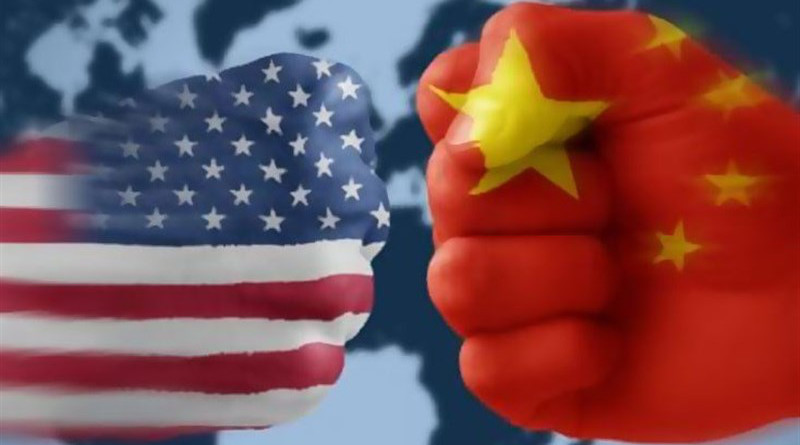Moving Beyond The US–China Cold War Cliche – Analysis
By Suisheng Zhao*
A bipolar world is emerging as the US–China rivalry dominates virtually every aspect of international politics. Bipolarity tends to exaggerate ideological hostility and encourages attempts to build exclusive alliances. Casting the rivalry as a battle between democracy and autocracy, the Biden administration has increased public criticism of China’s human rights violations and countered Chinese manoeuvring in the Pacific.
Portraying China as an existential threat, the United States has attempted to forge an alliance of democracies. Beijing has taken tit-for-tat actions to confront the United States and highlighted the superiority of the China model of authoritarianism in coping with the COVID-19 crisis. Enhancing strategic partnerships with Russia, Pakistan, Iran and other countries, Beijing has attempted to build a global ‘antihegemonic’ coalition.
But China’s ideological hostility is exaggerated. Beijing has not defined itself as the vanguard to transplant its systems throughout the world like the Soviet Union promoted communism and the United States promoted democracy. China’s version of authoritarianism — advanced through high-tech surveillance — does not offer a morally compelling alternative to liberal democracy for most countries.
Beijing is more afraid of Washington’s advocacy of expanding democracy into China than the United States is afraid of China’s authoritarianism. Instead of engaging in a determined effort to spread autocracy, Beijing has constructed an information firewall and tightened domestic ideological control. Rejecting liberal values as universal, China has sought primarily to make the world more accommodating to the Chinese Communist Party’s rule.
The ideological threat posed by the United States is also exaggerated. No longer the beacon of democracy, once almost-universal admiration has given way to disappointment over the displays of racial tensions, political polarisation, socioeconomic inequality and xenophobia. The devastating results of the United States using force to spread democracy, illustrated by the wars in Iraq and Afghanistan, have undermined support for democracy and generated anti-Americanism. US power has been in relative decline and its resilience has been seriously tested. The United States must put its own house in order before it can successfully wage a principled campaign against China.
Attempts to build exclusive alliances are also misperceived. US–China bipolarity does not match the classic vision of a colliding set of equivalent great powers. The United States and China are superpowers and are competing for dominance, but the European Union, Russia, Japan and India remain independent and may upset the power balance.
Many US allies and partners don’t want to be squeezed in between. They have different economic and strategic priorities, and varying threat perceptions. US President Joe Biden has faced up-hill battles to enlist like-minded nations against China. With no illusion about US strength, these countries have weighed the costs and benefits and made their decisions accordingly. Navigating the ever-changing rivalry, many US allies have stood up to China because of its threats to their economic and strategic interests but have also not decisively taken the US side and even confronted the US to safeguard their own interests. The announcement of AUKUS saw Australia cut its $66 billion diesel-electric submarine deal with France. Calling it a ‘stab in the back’, Paris reacted furiously and recalled its ambassadors to both the US and Australia. AUKUS has strained relations with America’s oldest European ally.
Similarly, Beijing has not built an anti-American alliance based on an ideological litmus test, but on complementary grievances against the threats posed by the United States. China’s strategic partnerships are more transactional than sentimental.
The world is not split into two rigid ideological and geopolitical blocs yet.
The delicate balance of power between the United States and China has further complicated the emerging bipolarity. Chinese President Xi Jinping has approached Washington from a perceived position of strength, no longer bending to pressure and accommodating its demands without conditions. But China’s projected confidence tends to paper over its domestic challenges and insecurity. It is unclear if China can become the first authoritarian regime to avoid the middle-income trap that has kept many emerging economies from becoming high-income countries.
China has spent enormous sums to modernise its military which still can hardly match the US or project itself globally. But China does not have to match US power to sustain the rivalry. Going far beyond the tottering command economy that defined the Soviet Union in its final years, China has built advanced and broad-based technology and a dynamic, globally competitive economy. Unlike the Soviet Union, China is far from an ideologically disillusioned and exhausted power. With Chinese suspicion of the United States at an all-time high, US hostility has supercharged Xi’s popularity for standing up to US pressure.
Washington has never faced a rival like Beijing. The two powers, incapable of dominating each other, have dictated the durability of the bipolarity. China cannot expect the United States to accept its authoritarian system, and Washington cannot alter Beijing’s intrinsic values or stop its rise.
Although no single power is likely to create a war on its own, there is a real possibility that missteps could lead to escalation and violent conflict. The leaders in both countries must find ways to compete constructively.
*About the author: Suisheng Zhao is Professor and Director of the Center for China–US Cooperation at the Josef Korbel School of International Studies, University of Denver. He is Editor-in Chief of The Journal of Contemporary China. His most recent publication is: The US–China Rivalry in the Emerging Bipolar World: Hostility, Alignment, and Power Balance.
Source: This article was published by East Asia Forum

